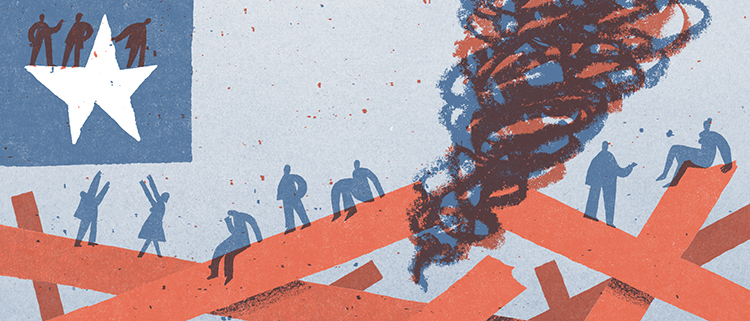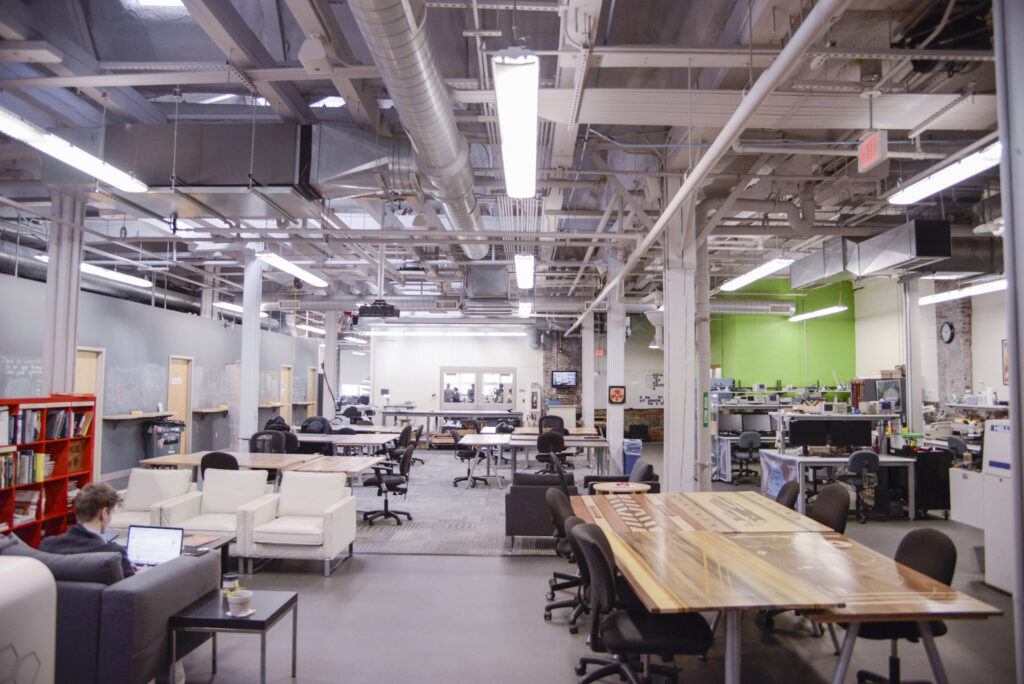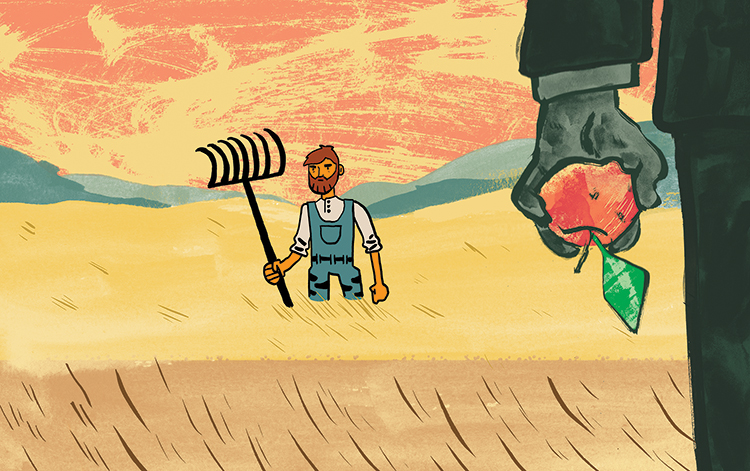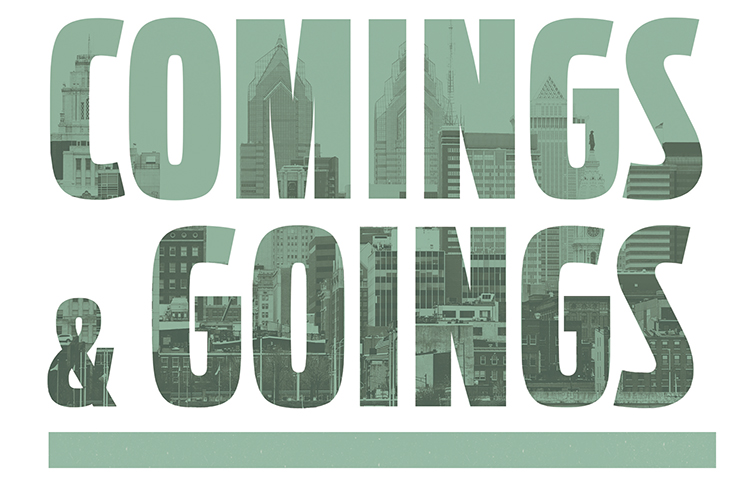America’s workplaces, and the policies that serve workers, are in need of renovation. Do we have the political will for an overhaul?
Interview by Heather Shayne Blakeslee
We’re awash in news accounts of workplace sexual harassment, the “fight for $15,” cities vying for the Amazon HQ2 bid, and Congress debating which public policies they claim will help “regular” Americans. Grid asked Peter Cappelli, management professor at the University of Pennsylvania’s Wharton School, his thoughts about what we can do to fix some of our broken systems.
You’ve written a lot about workplace culture. Fox News’ Bill O’Reilly and the late Roger Ailes are out. Uber’s Travis Kalanick, out. Harvey Weinstein, out. It seems as though every day there’s another report of sexual harassment. Do you think there will be a sea change?
PC: I think so. There already was, I think, a pretty big change in the big corporations. I don’t think there is a lot of explicit sexual harassment going on now in the big corporations. They’re really sensitive to it in the HR side, the complaint side. They know it’s bad for PR, they know the government has been watching them—the Equal Opportunity Employment Commission and the Department of Labor—and they don’t tolerate it.
You think about all of these revelations that you’ve just mentioned, every one of them is in organizations where individuals can be like personal dictators—the founder, right—at these small companies which suddenly get rich, like Silicon Valley, or even Amazon. I think it will be a big change in those companies. You’re not going to see any difference at GE or IBM or Procter & Gamble or any of those folks, but you’re going to start seeing it in these smaller companies where the boss, the founder, sets these quirky, dysfunctional cultures.
Philadelphia is among the cities bidding for the new Amazon headquarters, which the company says could bring in 50,000 jobs. Two years ago, The New York Times did an exposé on what was characterized as a brutal and cutthroat culture. Is that picture accurate, and, if so, what has been done to correct it?
PC: I don’t know much, independently, from Amazon—although I do know that they haven’t done an awful lot, other than [CEO] Jeff Bezos saying, “No, it’s not [like that].” I haven’t seen much of anybody say it’s not true. I guess, for Philadelphia, there’s kind of a “so what?” issue. For one thing, it’s not clear what a headquarters away from the real headquarters is. Duplicate headquarters would just be crazy expensive and complicated. So I suspect that they’ll have an administrative center, and I don’t think that has to operate the way things do at an actual headquarters, where the boss is there and everybody’s competing for the boss’ attention and it still feels kind of like a startup. They do have that reputation—but it is a reputation at the headquarters.
Some workers aren’t getting by even while juggling multiple jobs. Will Pennsylvania or Philadelphia move toward a $15 minimum wage?
PC: We know across the country, cities tend to be Democratic; states are much more likely to be Republican. So you see the cities moving much more aggressively in this direction than the states. The thing you worry about is: If you raise the minimum wage, are you going to eliminate a lot of jobs at that level? The [research] is that small movements in the minimum wage don’t seem to have much effect on jobs. But there are recent studies out of Seattle, where they jumped the minimum wage a lot very quickly, and that did seem to reduce jobs at the low end. But part of that is this territorial problem: If you’re raising the minimum wage in a country, employers can’t do very much to get around it; if you raise it in a city, all they have to do is step over the border to the county—go over City Line Avenue or its equivalent. So you might see some of that going on, which would hurt jobs. I think what we know is: Gradual doesn’t seem to have much effect on jobs; rapid and big has an effect, especially if one jurisdiction is trying to do it and the ones around it are not.
Do you have a sense of what incremental would be? Pennsylvania’s (and Philadelphia’s) minimum wage is $7.25. What if we wanted to bring it up to $15?
PC: If it doubled in a period of tight labor markets, where wages were going up anyway, and it doubled over 10 years or something, it might not matter that much. If you’re trying to do a doubling in five years, that’s a pretty big move. I’m pretty sure there will be jobs lost in a move that big.
Is there one issue, program or approach at the federal level that you think would make things better for the average American?
PC: I don’t see anything being done that’s going to help the average worker.
[Tax policy reforms at the federal level] look like they’re going to be quite regressive, so that more of the cuts disproportionately go to rich people. The problem with that is that the states and local governments end up picking up the slack, and so they’ve got to raise taxes, and it ends up being worse for people who don’t have as much money, because the tax burden shifts away from the richer folks to everybody else. So there’s nothing on the policy agenda that is going to be any better
for workers.
Even the immigration thing—illegal immigration, which is hard for anybody to support—it’s been declining sharply anyway, even before President Trump came in, because Mexico’s been doing better. A lot of them have gone home, because opportunities there are better and the U.S. economy has been in lousy shape for jobs for the last eight years or so.
Is there anything Congress could consider that you think would be good for workers?
PC: Policies that make it easier on families would be a good thing, for sure. Some of that is college costs, college loans, all that kind of stuff. Regulation of colleges could be better, particularly those that are predatory.
Keeping the minimum wage from eroding helps, because if you don’t raise it with inflation it starts to go down. Enforcing employment laws that exist, which tends to go down when Republicans are in office, goes up when Democrats are in office. That would be helpful.
And if they had actually done this infrastructure investment—that was the one thing everybody on both sides thought made sense—that would be really important, I think, for everybody in the country, but especially for poorer people… Richer people don’t really need the infrastructure so much, especially the billionaire class. They fly in their own planes, they don’t drive very much, they don’t send their kids to public schools, any of that stuff. They don’t really need government very much, but everybody else does. Public services and public buildings and infrastructure—that would make everybody’s life better.









